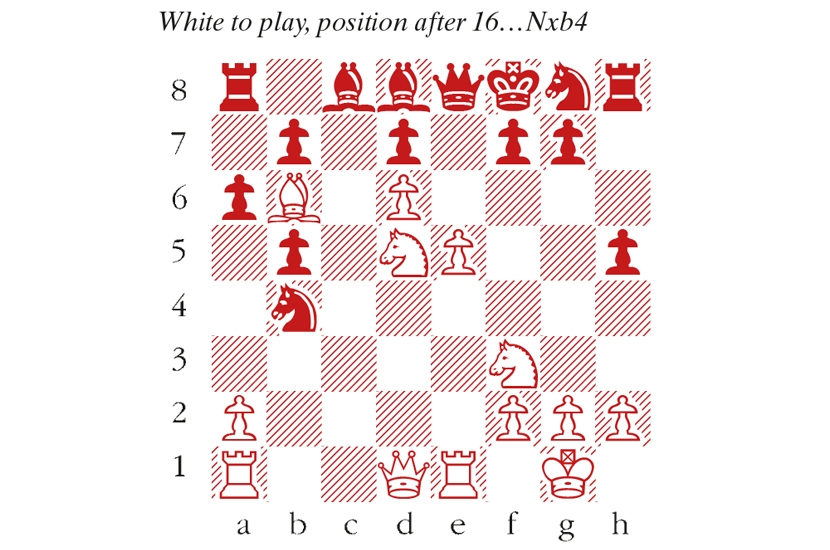Twenty years ago, I was an avid fan of the cult TV programme Robot Wars. Teams of contestants would design and nurture their metal offspring, and then set them to fight. The goal of these remote-controlled battles was to cripple the enemy robot, or eject it from the arena. They sliced, bashed, torched, shoved and flipped each other, and much of the fun lay in trying to guess which technique would triumph.
A clash of contrasting styles clearly holds some visceral appeal. Mongoose or cobra? The shackled bear, or the snapping bulldogs? Bearbaiting is consigned to history, but there is an ongoing online dogfight between two of the top chess engines, Stockfish and Leela Chess Zero. Stockfish, an open-source chess engine, is freely available and very powerful. It is a ‘brute force’ engine, in the same tradition as IBM’s famous ‘Deep Blue’ which defeated Garry Kasparov. Leela (sometimes known as Lc0) is the young upstart, a ‘neural net’ engine, which is based upon DeepMind’s famous AlphaZero, which caused such excitement when its games were first published a couple of years ago. (Game Changer, written by Matthew Sadler and Natasha Regan, is an excellent guide).
You can’t run AlphaZero on your own computer, but the revolutionary artificial intelligence algorithms which underpin it were described in detail by DeepMind. They provided a blueprint for Leela, a program which can be run at home, thanks to a distributed online development effort.
‘TCEC’ (Top Computer Engine Championship) (tcec-chess.com) is a regular competition for the world’s best engines, in which Stockfish and Leela have consistently risen to the top. Season 17 ended in April with a narrow 52.5-47.5 victory for Leela over Stockfish in the final. The differing design of these engines leads to some incredible battles.
Leela and its ilk show a heartening appetite for long-term sacrifices, exemplified in the following game. The opening phase wouldn’t look out of place next to the romantic games of the 19th century, but the unhurried follow-up is the real marvel, particularly between moves 10-15 and 20-30. Traditional engines like Stockfish are tenacious defenders, but that doesn’t always suffice.
Leela Chess Zero–Stockfish
ECO MegaMatch II, chess.com
1 e4 e5 2 Nf3 Nc6 3 Bb5 Bc5 4 c3 Bb6 5 d4 exd4 6 cxd4 Nce7 7 O-O c6 8 d5! Extraordinary. Sacrificing a whole bishop to drive a pawn wedge through the centre of the board. 8…cxb5 9 d6 Nc6 10 e5 Kf8 11 Nc3 Qe8 12 Re1 h6 13 Nd5 Bd8 14 b4 Simply mobilising all the pieces. Black’s passive pieces, particularly the Bc8 and Ra8, have little say. 14…a6 15 Be3 h5 16 Bb6 Nxb4 (see diagram) 17 Nf6! gxf6 18 exf6 Qxe1+ 19 Qxe1 Bxf6 20 Qxb4! The knight would have plugged a lot of holes on c6, hence this bold exchange sacrifice. 20…Bxa1 21 Ng5 h4 22 Qb3 Nh6 23 Qd1 Bg7 24 Qe2 Bf6 25 Ne4 Ba1 26 Qe1 Bg7 27 Qe3 Ng8 28 Qg5 f6 29 Qg6 Rh6 30 Qf5 Kf7 31 Ng5+ Kf8 32 Nf3 Stockfish still has ample material for the queen, but there is almost nothing to do with it. 32…h3 33 g4 Bh8 34 g5 Rh5 35 Be3 b6 36 Ne5 Rb8 37 Kf1 b4 38 Qg6 Finally cashing in. 38…fxe5 39 Qxh5 Bb7 39…Bg7 40 Qf3+ Ke8 41 Qd5 Kf8 42 g6 does the trick. 40 Qxh8 Bg2+ 41 Ke1 Be4 42 g6 Bxg6 43 Qxh3 Nf6 44 Qh8+ Kf7 45 Qxb8 With queen for knight and pawn, mopping up was just a matter of time. White won.






Comments